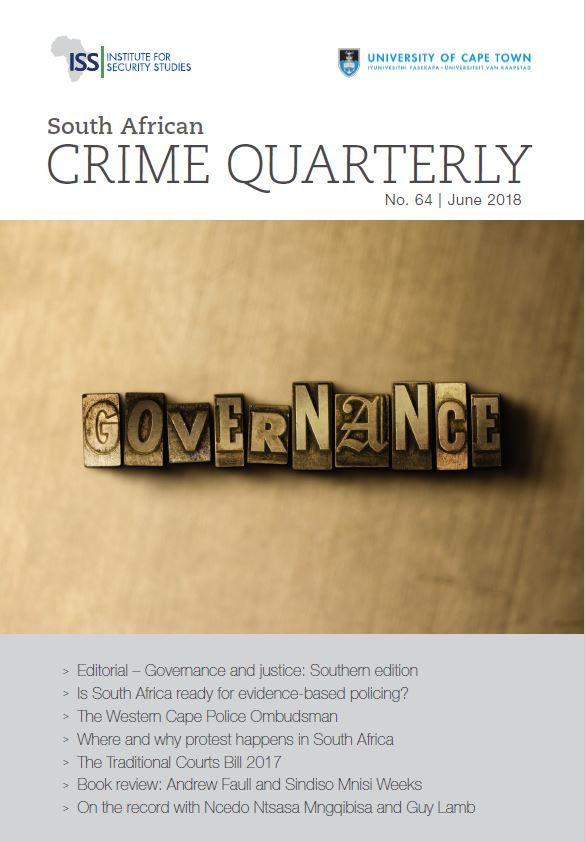The third time a charm? Traditional Courts Bill 2017
DOI:
https://doi.org/10.17159/2413-3108/2018/i64a4870Abstract
This article discusses the latest version of the Traditional Courts Bill introduced by Parliament in 2017. It examines several fundamental objections to previous versions of the Bill to explain the progress that has thus far been made. In a much-welcomed improvement, the 2017 Bill provides a mechanism for individuals to opt out of the traditional justice system. Nonetheless, the recognition of the old apartheid homeland boundaries is perpetuated, as only courts convened by a traditional leader, whose power and jurisdiction are based on the old tribal boundaries, are recognised. A notable change is that there are no longer appeals to the magistrates’ courts. Parties may appeal a decision to a higher customary court or apply for a review of a decision to the high court. This calls into question the accessibility and affordability of appeals, and essentially locks people into the traditional justice system after the commencement of proceedings. The bar on legal representation continues under the 2017 Bill, which remains objectionable given that traditional courts may still deal with criminal matters. However, the powers of traditional courts in granting sanctions have been significantly circumscribed and regulated. Thus, while the 2017 Bill represents a significant development of previous versions of the Bill, there is still room for improvement.
Downloads
Downloads
Published
Issue
Section
License
Copyright (c) 2018 Author and Institute for Security Studies

This work is licensed under a Creative Commons Attribution 4.0 International License.
SACQ is licenced under a creative commons licence (CC BY) that allows others to distribute, remix, tweak, and build upon your work, even commercially, as long a they give appropriate credit, provide a link to the license, and indicate if changes were made. They may do so in any reasonable manner, but not in any way that suggests the licensor endorses you or your use.
Copyright for articles published is vested equally between the author/s, the Institute for Security Studies and the Centre of Criminology (UCT).
How to Cite
Metrics

- Citations
- Citation Indexes: 1
- Usage
- Full Text Views: 731
- Abstract Views: 57
- Captures
- Readers: 11
- Mentions
- News Mentions: 1



.png)